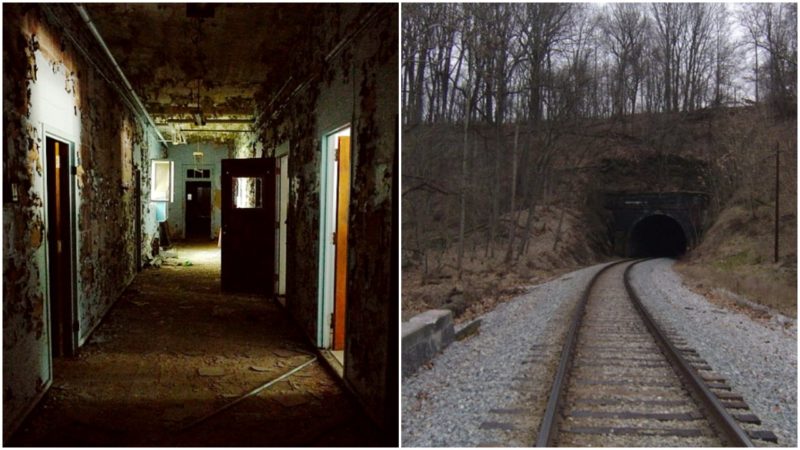Situated in the southern Carroll County, Maryland, a little way across the Howard County line, this state hospital welcomed its first patients in 1922. It was situated on land within Patapsco Valley State Park and its location is very close to the third-oldest tunnel in the world, the Henryton Tunnel.
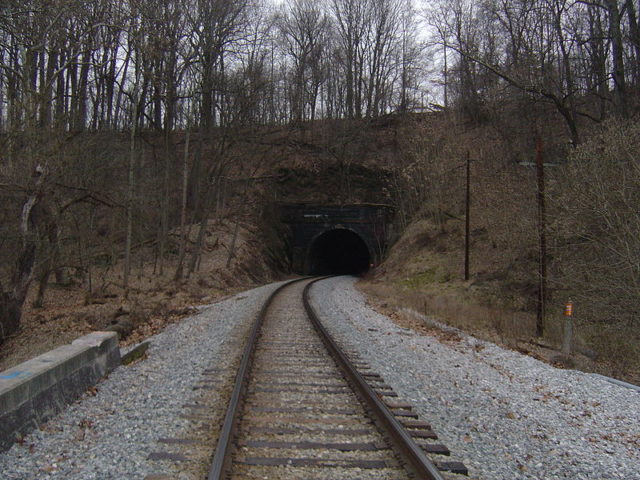
The Henryton Tuberculosis Sanatorium, as it was sometimes called, was erected by the Maryland Board of Mental Hygiene. Its initial purpose was to treat African Americans suffering from tuberculosis.
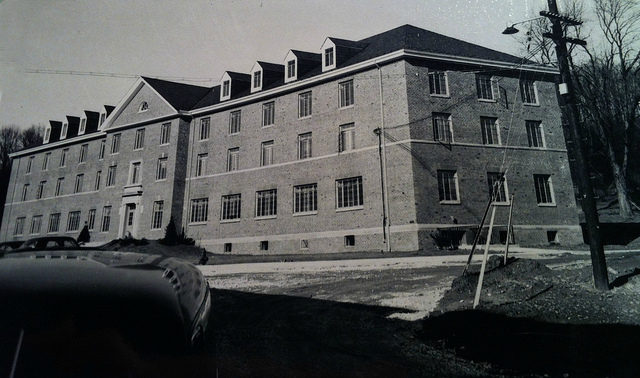
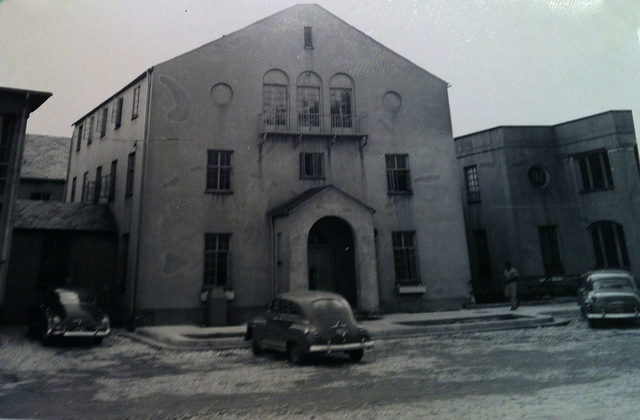
The Henryton State Hospital was the first institution of its kind to offer care for the African Americans at the same level of treatment and professionalism as that offered to white people. The original complex had six main buildings and one utility plant. Its construction began in 1921 and the last of the building work was finished in 1923.
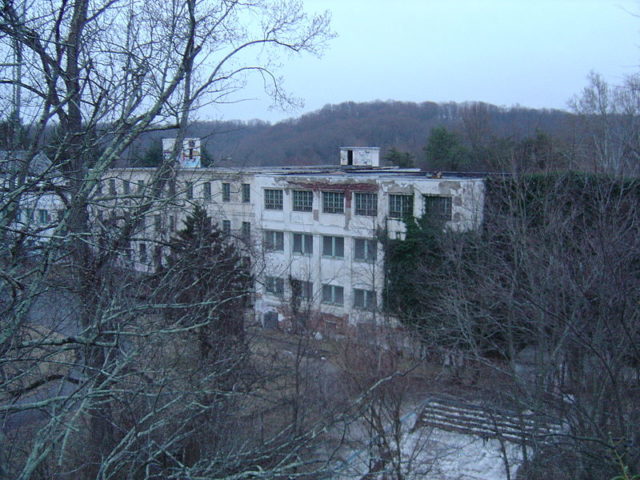
During the twenties and early thirties, the number of African Americans suffering from tuberculosis was quadruple the amount in comparison with the rate among whites, hence the need for such a hospital. And with its construction, Maryland’s program to treat all of the state’s tubercular patients was complete.
As time went on, the hospital’s needs grew exponentially. A refrigerated morgue was demanded after the hospital did the unthinkable; they cremated and disposed of the remains of an African American child before the parents were even notified. And so the hospital continued to add more and more structures to its complex.
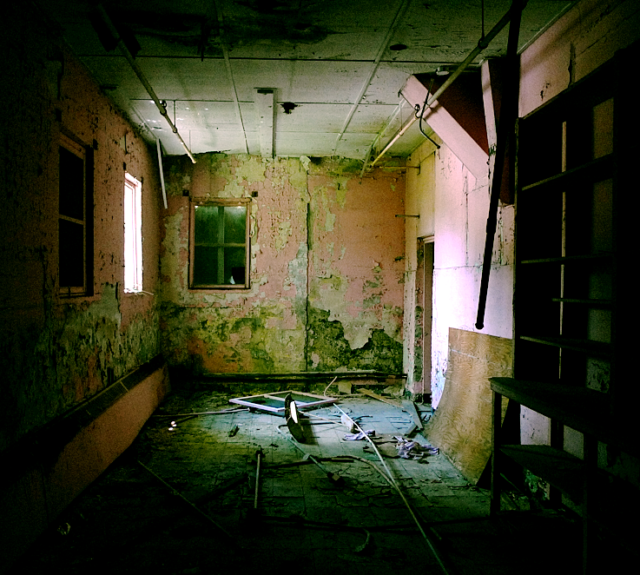
By the time it was done building in the 1940s, the level of tubercular patients had dropped rapidly. Now the hospital was facing another problem, it had more space than it needed.
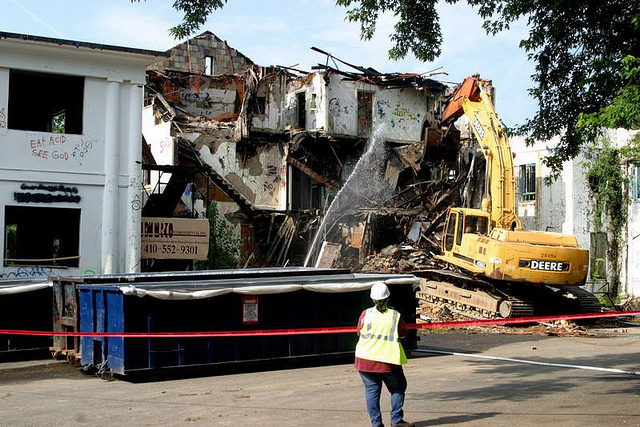
In 1963, the hospital ended its tuberculosis treatment and was reoriented to serve the “severely and profoundly retarded ambulatory [Maryland] residents ages eighteen and over”. Now the hospital had 220 patients out of the allowed 300, but Henryton State Hospital continued its expansion none the less and patients numbers were increased upto 400 in the 1950s.
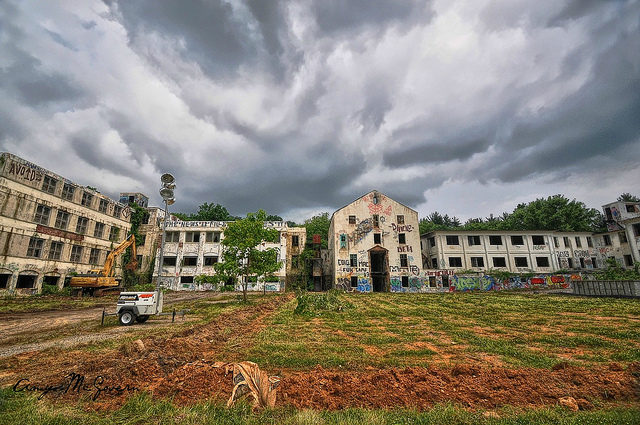
The rehabilitation program was so successful that some of the patients managed to return back to their respected communities and some of them even got their old job back. In 1972, the Henryton Bridge and the Henryton Road were severely damaged due to the Hurricane Agnes, the costliest hurricane to hit the United States.
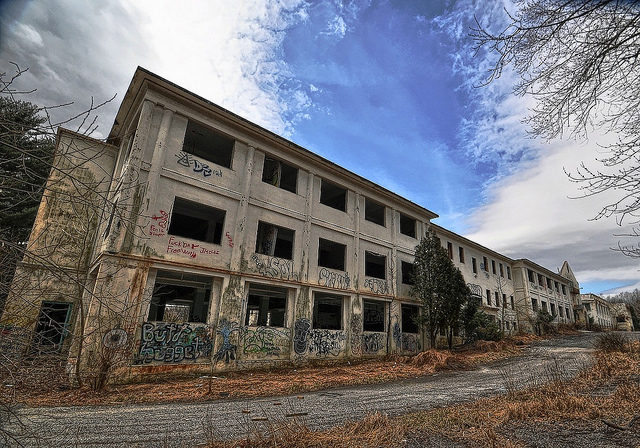
The mind shift from institutionalization to more outpatient and home care eventually resulted in fewer and fewer patients and so subsequent closure ensued in 1986.
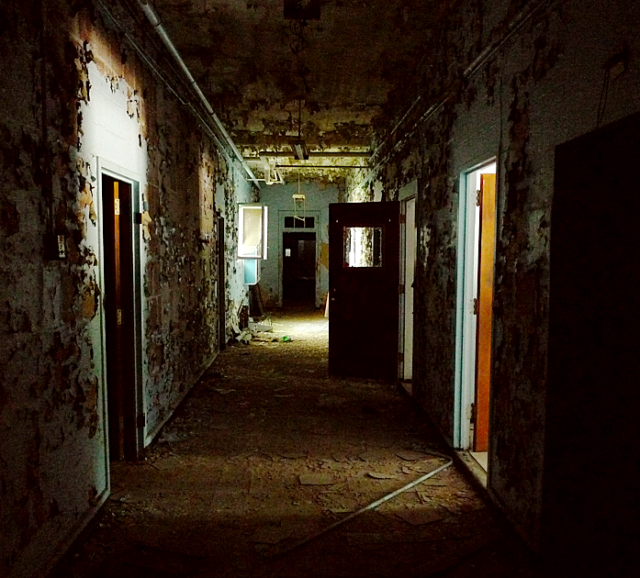
During the decades in which the hospital laid abandoned and in ruins, urban explorers, vandals, drug addicts, drifters and graffiti artists regularly roamed the hallways of Henryton State Hospital.
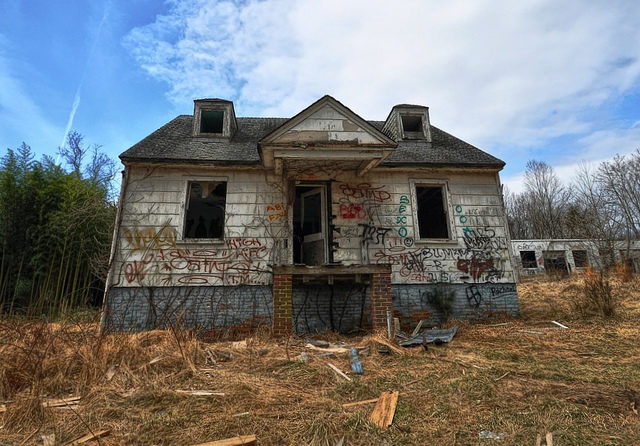
Today, the hospital is completely demolished due to asbestos poisoning and a site wall with a small plaque is all that remains.
